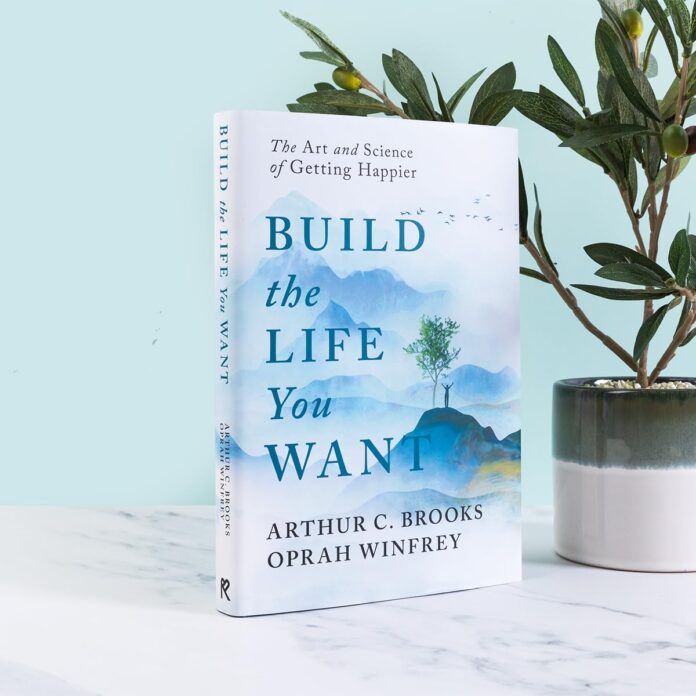Introduction
As a financial-planner-gurgaon/" target="_blank" rel="nofollow">financial planner and coach, I often emphasize the importance of not just financial wealth but also overall well-being and happiness. In our pursuit of a rich and fulfilling life, understanding the art and science of happiness is crucial. Arthur C. Brooks’ book, “Build the Life You Want: The Art and Science of Getting Happier,” offers profound insights into achieving this balance. The book delves into the elements of happiness, focusing on intrinsic goals, relationships, lifelong learning, resilience, and finding meaning in life. Here, I’ll share seven key lessons from Brooks’ work and how they can be applied to enrich our lives.
1. Understand the Science of Happiness
Arthur C. Brooks begins by demystifying happiness, presenting it as a blend of pleasure, purpose, and satisfaction. He underscores that understanding these elements and their interplay can guide us in making informed life choices.
Happiness, as Brooks explains, isn’t just about fleeting moments of joy. It’s about a sustainable state of well-being that comes from a balanced integration of pleasure (immediate joy and comfort), purpose (a sense of direction and meaning), and satisfaction (contentment with what one has achieved). By recognizing this triad, we can tailor our actions and decisions to foster a more holistic form of happiness.

2. Focus on Intrinsic Goals
In a world driven by external validation, Brooks emphasizes the importance of intrinsic goals—those that are internally rewarding. Unlike extrinsic goals such as wealth and fame, intrinsic goals are centered on personal growth, meaningful relationships, and self-acceptance.
Focusing on intrinsic goals leads to deeper satisfaction and long-term happiness. For example, setting goals related to self-improvement, like learning a new skill or fostering a hobby, can provide a sense of accomplishment that’s deeply personal and enduring. Similarly, cultivating meaningful relationships enriches our lives in ways that material success cannot.

3. Practice Gratitude
Gratitude is a powerful practice that shifts our focus from what we lack to what we have. Brooks advocates for regular expressions of gratitude as a way to enhance our well-being.
Practicing gratitude can be as simple as keeping a daily journal where you note down things you are thankful for. This practice helps us appreciate the positives in our lives, counteracting the natural human tendency to dwell on negatives. Over time, gratitude can lead to a more optimistic outlook and a heightened sense of contentment.

4. Invest in Relationships
One of the core messages in Brooks’ book is the significance of strong, positive relationships in achieving happiness. Relationships are not just social connections; they are fundamental to our emotional well-being.
Investing time and effort in nurturing relationships with family, friends, and community members can greatly enhance our happiness. Meaningful interactions provide support during tough times, joy during good times, and a sense of belonging and purpose. Brooks encourages us to prioritize these relationships, as they are key to a fulfilling life.

5. Embrace Lifelong Learning
Lifelong learning is another cornerstone of Brooks’ approach to happiness. Continuous learning keeps our minds active, opens up new opportunities, and brings joy and satisfaction.
Engaging in new experiences and acquiring new knowledge can prevent stagnation and promote personal growth. Whether it’s taking up a new hobby, reading books on diverse topics, or pursuing further education, lifelong learning keeps life interesting and fulfilling.
Also read: Unlocking the Secrets of “The Alchemist” by Paulo Coelho: A Personal Journey to Self-Discovery
6. Develop Resilience
Resilience, the ability to bounce back from setbacks, is crucial for long-term happiness. Brooks discusses how building resilience involves cultivating a positive mindset, seeking support, and learning from difficult experiences.
Resilience doesn’t mean avoiding challenges; rather, it’s about facing them with a constructive attitude and learning to adapt. By viewing challenges as opportunities for growth, we can develop a stronger, more resilient mindset that enhances our overall well-being.
7. Find Meaning and Purpose
Finally, Brooks emphasizes the importance of finding meaning and purpose in life. Engaging in activities that align with our values and give us a sense of purpose leads to greater fulfillment.
Purpose-driven actions, such as helping others or contributing to a cause we believe in, provide a deep sense of satisfaction and direction. By identifying what truly matters to us and dedicating our efforts to those areas, we can create a life that feels both meaningful and rewarding.
Conclusion
“Build the Life You Want” by Arthur C. Brooks offers a comprehensive guide to achieving lasting happiness. By focusing on intrinsic goals, nurturing relationships, embracing lifelong learning, developing resilience, and finding meaning and purpose, we can create a fulfilling and happy life.
As a financial-planner-gurgaon/" target="_blank" rel="nofollow">financial planner and coach, I find these principles highly relevant. They complement the financial strategies I teach, providing a holistic approach to well-being. By integrating these lessons into our lives, we can not only achieve financial success but also enjoy a rich and fulfilling life.
For those interested in delving deeper into these insights, I highly recommend getting a copy of Brooks’ book. It’s available [here](), and you can also access the audiobook for free on Audible here . Start your journey to a happier life today!
The author of this article, Taresh Bhatia, is a Certified Financial Planner and advocate for female empowerment. For more information and personalized financial guidance, please contact taresh@tareshbhatia.com
He has authored an Amazon best seller-“The Richness Principles”. He is the Coach and founder of The Richness Academy, an online coaching courses forum. This article serves educational purposes only and does not constitute financial advice. Consultation with a qualified financial professional is recommended before making any investment decisions. An educational purpose article only and not any advice whatsoever.
©️2024: All Rights Reserved. Taresh Bhatia.
Subscribe Now for Upcoming Blogs!
[convertkit form=6555951]
📢 Join free live webinar —
Couple Finance Formula™ Register here




